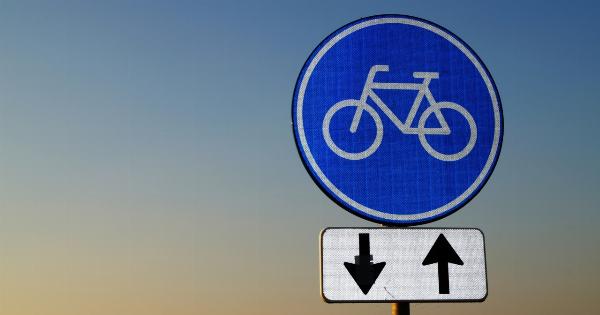Jaundice is a condition characterized by the yellowing of the skin and eyes, which occurs due to the accumulation of bilirubin in the body. It can be a symptom of an underlying liver or gallbladder problem and should not be ignored.
If you suspect you might have jaundice, it is essential to seek medical advice for a proper diagnosis. However, there are also a few signs and symptoms you can look out for to determine if you have jaundice.
1. Yellowing of the Skin and Eyes
The most common and noticeable symptom of jaundice is the yellowing of the skin and whites of the eyes. This yellow coloration, known as icterus, results from the buildup of bilirubin in the blood.
Initially, the yellowing may be seen in the whites of the eyes, followed by the face, hands, and eventually the entire body.
2. Dark Urine
If you have jaundice, you may notice that your urine appears darker than usual. The increased levels of bilirubin in the bloodstream lead to its excretion through urine, causing it to be darker in color, sometimes resembling a dark tea or amber.
3. Pale Stools
On the contrary, while your urine may become darker, your stools may become pale or clay-colored.
This occurs because the bilirubin that gives stool its usual brown color does not reach the intestines in sufficient amounts due to a compromised liver or gallbladder function.
4. Abdominal Pain
Some individuals with jaundice may experience abdominal pain or discomfort. This pain can range from mild to severe and may be accompanied by other digestive symptoms, such as nausea, vomiting, or loss of appetite.
Abdominal pain can be a sign of an underlying liver or gallbladder issue that needs medical attention.
5. Fatigue and Weakness
Jaundice can sap your energy levels and leave you feeling fatigued and weak. This is because a malfunctioning liver affects your body’s ability to store and release glucose, leading to a lack of energy supply.
If you notice a persistent lack of energy and weakness, along with other symptoms of jaundice, it is important to consult a healthcare professional.
6. Itching
Skin itching, medically known as pruritus, is another common symptom experienced by those with jaundice. The accumulation of bile salts under the skin can cause itching, which can be quite bothersome.
If you notice excessive itching along with other signs of jaundice, it is advisable to seek medical attention for proper evaluation and treatment.
7. Unintentional Weight Loss
If you have jaundice, you may also experience unintended weight loss. This can occur due to various factors, such as loss of appetite, decreased absorption of nutrients, or altered metabolism.
Unexplained weight loss should never be ignored as it can indicate an underlying health condition that requires medical investigation.
8. Fever and Chills
In some cases, jaundice can be accompanied by fever and chills. These flu-like symptoms usually indicate an infection in the liver or bile ducts.
If you have yellowing of the skin or eyes along with a fever, it is crucial to seek immediate medical attention as it may signify a more serious condition that needs prompt treatment.
9. Changes in Mental State
In severe cases of jaundice, a condition called hepatic encephalopathy may occur, involving changes in mental state, confusion, and even coma. This is caused by the accumulation of toxins in the bloodstream due to impaired liver function.
If you or someone you know experiences sudden changes in mental state along with other symptoms of jaundice, it is a medical emergency that requires urgent care.
10. Symptoms in Newborns
Jaundice is common in newborns and is usually harmless. However, if your newborn has severe jaundice or exhibits the following symptoms, immediate medical attention is required:.
• Yellowing of the skin or eyes within the first 24 hours after birth.
• High-pitched crying.
• Poor feeding.
• Lethargy or excessive sleepiness.
• Arching of the body.
If you suspect your newborn has jaundice, consult your pediatrician immediately to determine the best course of action.
Conclusion
Jaundice is a condition that should never be self-diagnosed or ignored.
While the aforementioned symptoms can help you determine if you might have jaundice, it is essential to consult a healthcare professional for an accurate diagnosis and appropriate treatment. Prompt medical attention is crucial to identify the underlying cause of jaundice and prevent any potential complications.




























